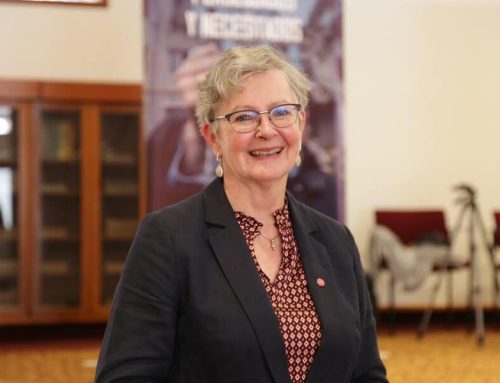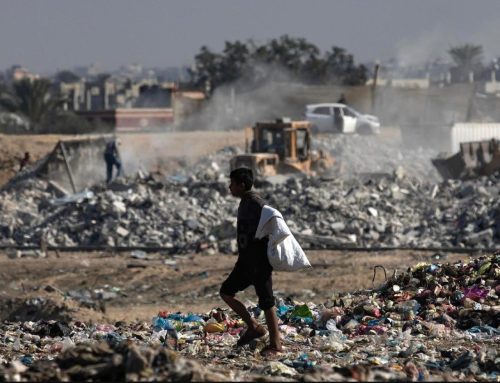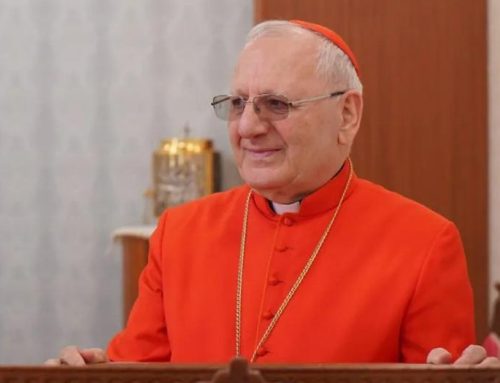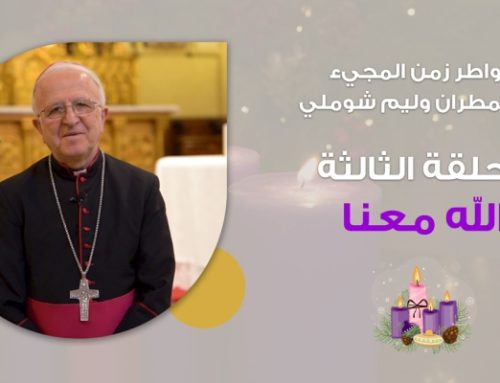This letter to President Bush from fifty leaders of evangelical and mainline Protestant, Catholic and Orthodox churches and church-related organizations focuses on the crisis confronting Christian Palestinians and Christian institutions in the Holy Land, with an emphasis on the impact of the separation barrier to all Palestinians. The complete text of letter with signers is available on our website at: https://www.cmep.org/letters/BushLetter.pdf Below is the body of the letter and the press release.
This letter to President Bush from fifty leaders of evangelical and mainline Protestant, Catholic and Orthodox churches and church-related organizations focuses on the crisis confronting Christian Palestinians and Christian institutions in the Holy Land, with an emphasis on the impact of the separation barrier to all Palestinians. The complete text of letter with signers is available on our website at: https://www.cmep.org/letters/BushLetter.pdf Below is the body of the letter and the press release.
The letter will be delivered to the offices of all Representatives and Senators, with a cover memo from CMEP. We urge you to mail the Church Leaders’ letter to your own Representative and two Senators with a short personal note.
May 7, 2004
The Honorable George W. Bush
The White House
Washington, DC 20500
Dear Mr. President:
We write to you about the situation and future of Christianity and Christians in the Holy Land. We do not mean to minimize the suffering of Muslims and Jews, but we believe it is important that you fully understand the crisis in the Holy Land confronting Christian Palestinians, Christian institutions, and those who wish to visit the birthplace of Christianity.
Individually and collectively, churches have directed their concerns to the Israeli government but to little avail. Those of us with religious institutions in Israel and the Occupied Territories are no longer able to function normally, and it is generally acknowledged that relations of the churches and these institutions with the Israeli government may be the worst they have ever been. Meetings with embassy staff in Tel Aviv and with appropriate State Department personnel in Washington, though appreciated, have not produced satisfactory results. Therefore, we believe your intervention is needed at this difficult time.
Specifically:
Visas. The denial and delay of visas, by Israel, for clergy and church personnel result in understaffed seminaries, churches, hospitals, educational and other institutions, so that they have neither the spiritual nor the professional staff that they need. (These are the very kind of faith-based initiatives you have promoted in the United States.) For example, the Catholic Church operates 151 institutions (including 33 parishes, 7 hospitals, 11 dispensaries, 8 orphanages, 5 homes for the elderly, 7 homes for the handicapped, 70 schools, 5 theological seminaries, and 5 institutions of higher learning). Protestant denominations have similar institutions and many suffer from lack of sufficient personnel due to visa problems. Members of secular institutes, commissioned lay staff members, and even volunteers, without whom some institutions could not operate, are sometimes refused a visa.
Taxation. A number of our church organizations – specifically, Lutheran World Federation, Catholic Relief Services and Mennonite Central Committee – have long-standing and broad tax exemption agreements with the Israeli government. For more than fifty years, these organizations have offered charitable services and development programs which contribute to the wellbeing and security of both Palestinians and Israelis. In recent years the Israeli taxation department has attempted to back out of these tax-exemption agreements. These church organizations have worked unsuccessfully with Israeli authorities for nearly six years attempting to resolve this issue. The Israeli tax department’s decision, if upheld by the Israeli courts, will create economic hardship for all the named organizations and, most seriously, could lead to the closing of the Lutheran World Federation’s Augusta Victoria Hospital located on the Mount of Olives.
Separation Barrier. While we understand that there are Israelis who sincerely believe this barrier will bring them relief from terrorizing acts, we fear that it will in fact do quite the opposite by intensifying Palestinian despair. A sobering reality check might be the violence continuing within Gaza and emanating from Gaza despite its being totally enclosed. It is impossible for those who have not seen the barrier to comprehend fully its effect on the psychology of both Christian and Muslim Palestinians of all ages. The separation barrier is damaging Christian institutions and the daily livelihood of individual Christians. It separates families from one another, students from their schools, workers from their jobs, farmers from their land, doctors and patients from their hospitals, and most symbolically, Bethlehem from Jerusalem. For Christians worldwide, this structure is cutting off access to holy sites. Whether one calls it a fence, a wall, or a barrier, “The consequences will be devastating to the Christian community,” said the Jerusalem Bishops and Patriarchs in their statement of August 26, 2003.
We find it difficult to be assured by your description on April 14 of the barrier as “temporary” in light of Israel’s plans to extend the barrier far beyond the 1967 Green Line, encompassing on the Israeli side those large West Bank settlements that you implied would remain part of Israel. We agree with the widely held view that the separation barrier, as it deviates from the Green Line, is a tactic of Israel to claim land and water sources in the West Bank and Jerusalem that are necessary for a viable Palestinian state.
Mr. President, Christians in the Holy Land–and their schools, hospitals and churches–have a unique role. Prime Minister Sharon has commented that his unilateral initiative could delay negotiations and a Palestinian state for another generation. But this is a time frame in which, under the pressure of endless conflict, the endangered indigenous Christian population in the Holy Land could well disappear. We need your help in convincing the Israeli government that thriving Christian institutions are vital to all of our interests and to the future of a secure Israel. Even more, your help is needed as a force for peacemaking that builds bridges to a new and hopeful future.
Sincerely,
List of the 50 Ecumenical Christian Leaders -complete letter and signatories available on our website at: https://www.cmep.org/letters/BushLetter.pdf





